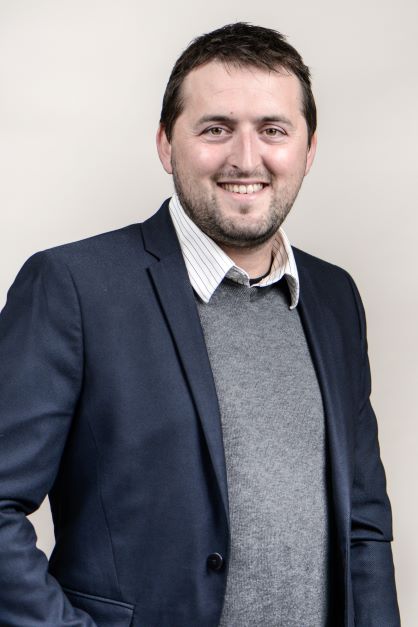SUSTAINABLE DEVELOPMENT SERIE
Journalist Iris Mour went to where it all begins: in the vineyards. There, she met five winegrowers who are all committed to the environmental transition in the Cognac region, which is home to over 4,000 winegrowing estates. The first person she met was Julien Massé, whose estate is located in the heart of Fins Bois, one of the six “crus” or areas of the Cognac appellation.
Winegrower AOC in Cognac
“I travelled around the Cognac region, a vast area home to an emblematic white grape variety: Ugni Blanc, which is low in sugar and high in acidity – two characteristics conducive to producing an excellent distilled wine. And there I met Julien Massé, a strapping man in his thirties who has around 40 hectares of vines in the hamlet of Bordeville in the Fins Bois region – one of the six “crus” or areas of the Cognac appellation.
Julien chose to send his wine spirits to a large négociant firm which takes care of the marketing side of things. “Who would make the connection between me, a winegrower in a small hamlet in Charente and an American influencer who is a fan of ‘yak’, as they say in New York?”, he smiled, acknowledging the contrast between a product rooted in a terroir where what prevails is the desire to transmit expertise and the global thirst for Cognac.
It wasn’t the first time I had heard his name. As a young journalist, I had met him while covering a story on trade union activities. Now the president of the Jeunes Agriculteurs de Charente, Julien has stepped up his commitments. He is dedicated both to his fellow winegrowers and his own vineyards, where he experiments with eco-friendly crop systems that help limit the use of plant protection products.
A grassing pioneer
In 2012, Julien joined the network of DEPHY pilot farms which bring together estates in each wine region that are willing to develop, pool and transmit their successful experiences in the ecological transition to others. A pioneer of grassing innovations (radishes, pulses, grains), he has since become an expert in cover crops: radishes capture excess nutrients in the soil and release them in the vines once the grass is weeded; grains loosen the soils and provide biomass energy; pulses capture nitrogen in the air.
“We’ve entered a new era”
In 2020, we went one step further. Julien is extending the use of biocontrol products made from natural products such as orange essential oils, apple pectin, and micronutrients which help stimulate the vine’s natural defenses and reduce the use of treatments. “When there’s a real threat of vine diseases, I use biocontrol products throughout my vineyards,” he highlights. Always concerned about the weather, he even purchased a small weather station to monitor variations in real-time on his phone.
Furthermore, he planted hedges in three vine plots along 1,200 meters in February 2021 to enhance biodiversity by providing a habitat for auxiliary fauna. Julien chose local varieties of young dogwood, blackthorn, privet and hawthorn hedges grown from seeds harvested locally in Poitou-Charentes. “We’ve entered a new era. For instance, my father, like everyone else, used to weed the vineyards. Today, I want to explore other avenues such as using cover crops, planting hedges, etc.”
The Cognac region is driven by a new generation of passionate winegrowers like Julien Massé. “The sector’s strong economic performance is a real asset,” he explains, “since it really allows us to go full speed with the environmental transition,” proudly mentioning that he has obtained HEV & Cognac Environmental Certification, which meets the specific requirements of the Cognac industry, as well as HEV certification criteria defined by the Ministry of Agriculture and Food. The objective for the Cognac industry is to have 100% of estates certified by 2028.
To be continued…





